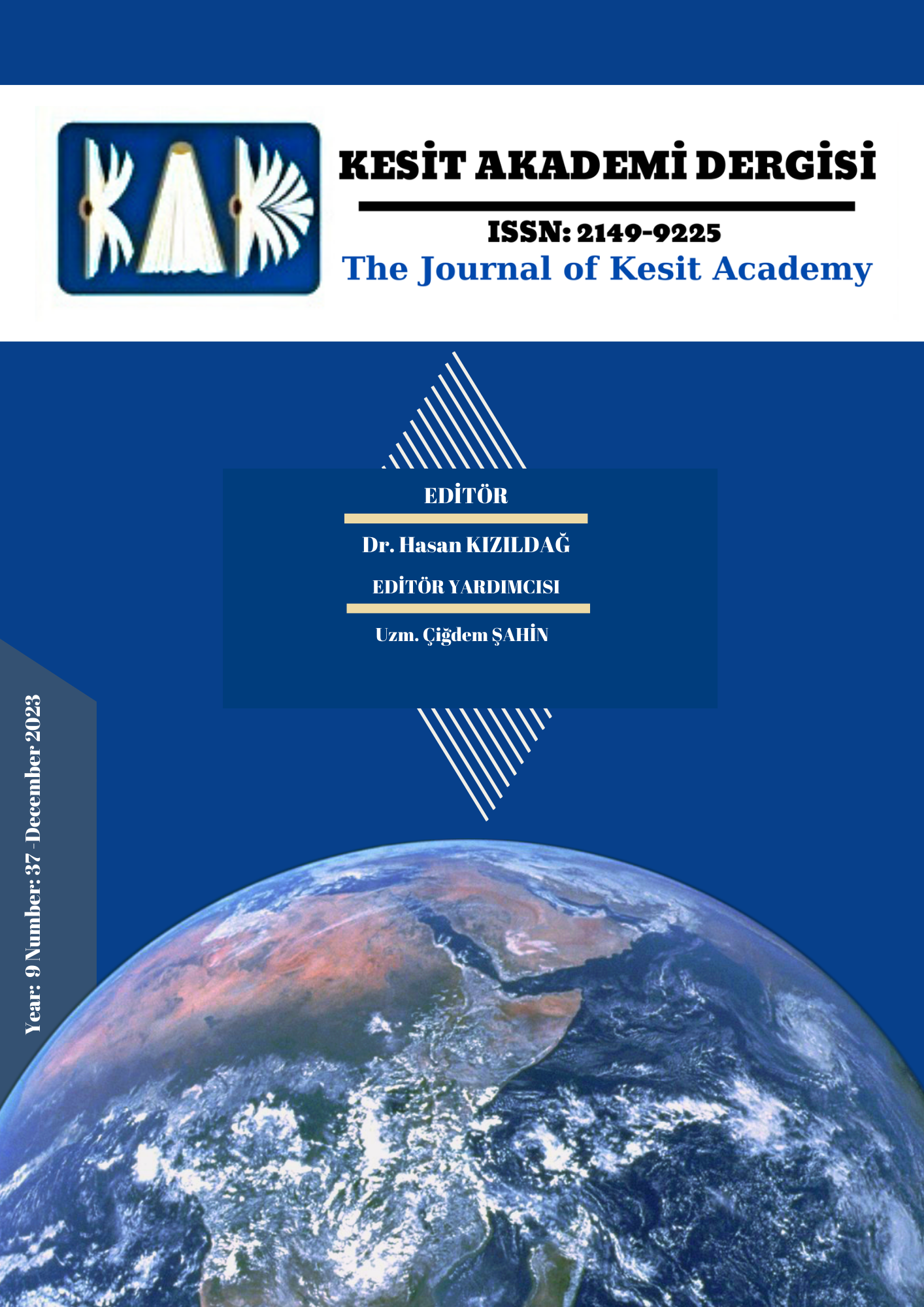Author :
Abstract
Sözcüklerin ortaya çıkışı tesadüfi değildir, ama büyük bir kısmının zaman içinde fonetik görünümleri, morfolojik yapıları ve anlamları önemli değişikliklere uğradığı için kökenlerinin belirlenmesi bir hayli zordur. Daha önce tarafımdan (Sağol Yüksekkaya 2020) hem en büyük Türk boy birliklerinden biri hem de efsanevi Türk kağanının adı olan ve kökeniyle ilgili olarak çok farklı görüşler ileri sürülen Oğuz sözcüğünün kökeninde “nesil, soy, kuşak, aile” anlamlarındaki uk sözcüğünün bulunduğu ve bu sözcük ile aynı kökten türemiş olan sözcüklerin asıl biçimlerinin söz başında /o/ ile değil /u/ ile olduğu (uguz, ugur, uguş, uhşa-) dile getirilmişti. Söz konusu çalışmada oğul sözcüğü bu kapsamda değerlendirilmemişti, ancak geçen zaman içinde sözcük üzerinde araştırma ve düşünmeye devam edilmiştir. Bu çalışmada oğul’un da Oğuz’la köken birliği olduğu ispatlanmaya çalışılacak ve aynı kökene sahip diğer sözcüklerle birlikte sözcüğün ilk biçiminin söz başında /u/ ile olduğu bilgisi sunulacaktır.
Keywords
Abstract
Emergence of words is not coincidental, but since phonetic appearances, morphological structures and meanings of most of them have undergone significant changes over time, it is quite difficult to determine their origins. I have previously stated (Sağol Yüksekkaya 2020) that the word Oğuz, which is both the name of one of the largest Turkish tribal unions and that of the legendary Turkish kagan, and about which so much different opinions have been put forward regarding its origin, has the word uk at its root, meaning “breed, lineage, generation, family”, and the original forms of the words, which were derived from the same root as this word, were not with /o/ but with /u/ at the initial position (uguz, ugur, uguş, uhşa-). In the aforementioned study, the word oğul was not evaluated within this scope, but researches and considering on this word continued over time. In this study, I will try to prove that oğul has as well a unity of origin with Oğuz and I will present that the first form of the word is with /u/ at the initial position of the word, along with other words having the same origin.
